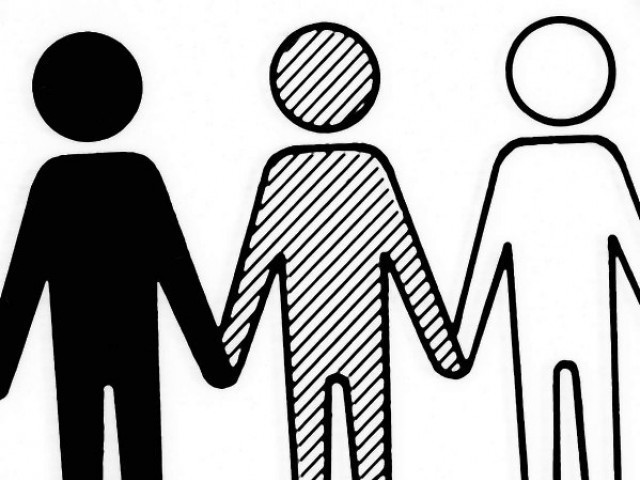[textblock style=”1″]CEIPES è alla ricerca di 2 partecipanti italiani, youth workers e professionisti nell’ambito dell’educazione formale e non formale, per il Training course intitolato “Bridging the gap – Anti-discrimination work in the formal and non-formal sector”, recentemente approvato in Armenia.
Periodo: Dal 20 al 28 febbraio 2015
Dove: Aghveran, Armenia
Lingua del progetto: Inglese[/textblock]
 THE PROJECT
THE PROJECT
The topic of anti-discrimination has a long history in (international) youth work and still forms a crucial concern in contemporary European societies. Discrimination based on lines of differentiation forms a reality in our daily lives and youth work can play an important role in this sphere to contribute to a positive change. One of the most prevalent forms of discrimination in nowadays Europe is discrimination based on (ascribed) cultural identities, which is becoming a more and more crucial topic through the increasing diversification of European societies due to the migration flows of the last decades.
Several approaches in the field of anti-discrimination work are however based on assumptions, which become doubtful under a closer look, e.g. the idea that we will actually be able to ever get completely rid of our prejudices and biases. Another problematic approach is the limitation of the discrimination problem to a certain group of people who just need to be “brought back on the right way”.
Another common problem is the limitation of the target group to the beneficiaries of the non-formal education sector. Organisations working in this field are often facing the difficulty to reach out to new target groups, especially the ones who don’t have a previous sensitization for the topic. An important step to improve this situation can be in building up stronger cooperation with the formal education sector, which in return can also benefit from methodological approaches used in the non-formal context.
Taking into consideration the described context and challenges, the proposed training wants to provide a space for youth workers/leaders as well as people working in the formal education sector to reflect about the topic of discrimination and to discover new ways of cross-sectoral cooperation.
PROFILE OF PARTICIPANTS
The participants’ profile is:
- Youth workers and professionals from other educational sectors, who are interested in challenging their own perceptions and to deeply reflect about topics related to discrimination
- Interested in exploring new ways of cooperation with other educational sectors
- Committed to the development and implementation of follow-up projects for young people in the thematic field of the training
- Being able to communicate fluently in English
- At least 1/3 of participants should have migration background or belong to a cultural minority group in their country of residence
Objectives
- To provide a space for participants from the formal and non-formal educational sector for an in-depth reflection on topics related to discrimination with a special focus on discrimination based on (ascribed) cultural identities
- To equip participants with innovative tools and methods, which can be used in anti-discrimination work with young people
- To give participants the chance to commonly develop strategies to extend their activities by involving other educational sectors
- To develop follow-up projects aiming at raising the awareness of young people of discriminatory practices and to raise their motivation to act against social injustice
Methodology
The methodology of the training will be based on the anti-bias approach, which has been developed in the context of anti-discrimination work in South Africa and the US. In the meantime, it has become one of the methods used also in the European context. The starting point of the anti-bias approach is a confrontation with the fact, that human beings are not born biased, but in the course of their lives become prejudiced. Thus, the aim targeted in this training is to enable the participants to confront themselves with their own biases and to learn dealing with them in a conscious way. In the first step the focus will be put on the individual/personal level. In the following step, the ideas for implementation on the institutional level will be discussed. The anti-bias approach triggers an ongoing, holistic and deeply personal process of self-reflection and questioning one’s own judgments. It aims at creating an inclusive, appreciating diversity environment for human beings to live, develop and grow
Condizioni economiche
– Vitto (colazione-pranzo e cena)e alloggio sono coperti al 100% dall’organizzazione ospitante.
– I trasporti acquistati dai partecipanti verranno rimborsati a fine progetto al 100% su un massimale di spesa di 360 euro a persona. Spese superiori saranno a carico dei partecipanti (la percentuale è calcolata sempre sul quel massimale)
– Quota di partecipazione 50 euro (tessera associativa CEIPES)
COME PRESENTARE LA CANDIDATURA
[warning]Per candidarsi compilare il form on-line, dove trovate anche infopack e daily programme, entro e non oltre le ore 16.00 del 17/01/2015.[/warning]
Potete trovare il training course anche sul sito SALTO YOUTH.
